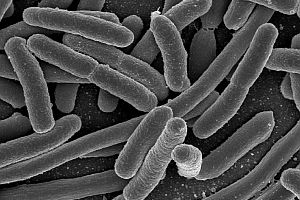How Do the Microbes in Your Digestive Tract Affect Your Health?
Our bodies are filled with microbes, including bacteria, fungi and viruses. The complete collection of microbes in our body is called our “microbiome”. It is unique to us and is believed to affect our health in many different ways.
In our intestines, the most abundant microbe is bacteria. There is currently great scientific interest in whether these bacteria might somehow play a role in either causing disease or preventing it. Michael Snyder, PhD, Director of Stanford University’s Center for Genomics and Personalized Medicine says, “There’s a good chance your microbiome is associated with every disease you can think of. And the area where bacteria have a huge impact is your gut.”
The Role of Gut Bacteria
Gut bacteria are absolutely essential to our lives and our health. Gut bacteria help us digest our food, make vitamins and signal immune responses. Scientists have discovered that everyone’s collection of gut bacteria is unique, and those with diseases often have a different amount or combination of gut bacteria than people without those diseases. The goal of current research is to discover what mix of bacteria healthy people have versus the mix that people with disease have, and to find ways to improve the mix for better health. In this way, doctors might also be able to detect certain diseases earlier, leading to more effective treatment.
Which Diseases May Be Linked to Gut Bacteria?
Scientists are still exploring this question, but studies have shown an association between gut bacteria and obesity, Chron’s disease, colon cancer, ulcerative colitis, and diabetes. One recent study showed that people with more of a certain inflammatory bacteria in their gut and fewer of another kind of beneficial bacteria are more likely to have rheumatoid arthritis.
Interestingly, gut bacteria may even be connected with cognitive and psychological disorders such as depression, ADD, anxiety, autism, OCD and Alzheimer’s disease. This connection may be due to the gut microbes’ ability to create molecules that impact brain function.
How Can We Improve Our Mix of Gut Bacteria to Achieve Better Health?
Rigorous research into the human microbiome is still in its infancy. However, it is safe to say that not all types and combinations of intestinal bacteria are created equal when it comes to their effect on our broader health. There is also some evidence that we may be able to influence the mix of microbes in our gut through our food choices. Just to be clear—this is NOT to say that changing any one particular aspect of your diet—substituting one sort of food for another, for instance—will result in a cure for any particular disease. However, do we know enough about a healthy overall diet and its impact on our body’s function and well-being to be able to recommend lowering sugar intake (sugar, bread, pasta, potatoes) and increasing fruits, vegetables, lean meats and healthy fats (olive oil, avocados, etc.). These changes contribute to a healthier nutritional profile, which clearly leads to better overall health and weight maintenance.
Some nutritional experts also recommend eating fermented foods containing live active cultures (such as yogurt, kimchee, kefir, miso, kombucha and sauerkraut) or taking probiotic supplements to support the colonies of “good” bacteria that live inside your gut. If you do choose to take probiotic supplements, there are a few things you should keep in mind:
- The probiotic supplement you choose must contain the right strains of bacteria to promote good health.
- The probiotic supplement must be of a good quality so that the bacteria strains they contain are active when you take them.
- Your digestive system is a very hostile environment. For probiotic supplements to do any good, enough of the good bacteria in them must be able to reach your intestines alive.
Nutrition can be a very complex subject, and our understanding of it is constantly evolving based on scientific research and clinical experience. If you’re interested in learning more about nutrition and health, please call us at Oblander Chiropractic at 406-652-3553 or visit our office!

